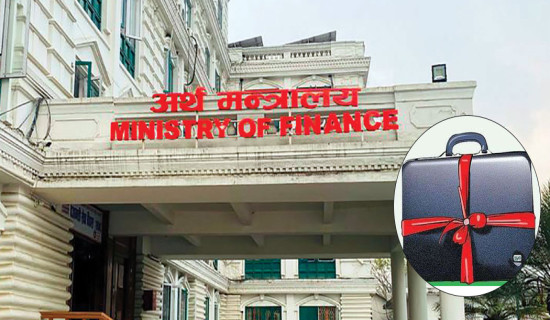- Wednesday, 5 November 2025
INGOs need consent of local authority to run projects
Kathmandu, May 9:The recently-launched Foreign Aid Mobilisation Policy, 2025 of Nepal aims to bring greater accountability and transparency to the utilisation of foreign aid channelled through Non-Governmental Organisations (NGOs).
A key aspect of the strategy focuses on ensuring that foreign aid mobilised by the International NGOs supports areas identified as crucial for the nation's development.
Internalising the new federal structure of the country, it mandates that INGOs must secure prior agreement from the local authorities where they intend to implement projects. Details of this assistance will be recorded in the Ministry's aid management information system, enhancing oversight.
Likewise, in a move towards more inclusive planning, the policy states that the selection of projects by INGOs must involve the participation of the federal, provincial, and local levels of government in the project formulation stage. Crucially, NGOs, both national and international, must implement projects in the specific local authority from which they obtained prior consent for their international fundraising initiatives.
The policy that replaced the earlier Development Cooperation Policy, 2019 emphasises aligning international assistance with Nepal's national needs and priorities.
Furthermore, the policy stipulates that both national and international NGOs seeking to implement projects funded through their international fundraising efforts must now do so via the Social Welfare Council (SWC).
Where INGOs partner with local NGOs for project implementation, they will be required to submit details of these agreements to the SWC. The Council will then facilitate the implementation process based on the information provided.
The policy also addresses the broader coordination of foreign aid, aiming for the efficient utilisation of resources through strengthened ownership and coordination across different levels and bodies. It bars the mobilisation of foreign aid through the NGOs in the religious, political and sensitive national areas. To check the duplication of the programmes and projects, the government can designate the geographical or thematic areas.
Likewise, the foreign aid operated programmes should not have administrative cost exceeding 20 per cent of the total budget.
Sub-national participation
The policy has also adopted a policy to enhance the ownership of the sub-national governments in the foreign aid and ensure its efficient use.
Regarding grant aid, loan assistance under the Government of Nepal's responsibility, and technical assistance, the Ministry of Finance (MoF) will enter into financial agreements and then forward these to the provincial and local levels for implementation.
Loan agreements initiated at the request of provincial and local authorities will involve the Nepal government signing subsidiary loan agreements with the relevant levels, allocating funds through the budget, and potentially managing principal and interest payments via an escrow account.
Except loans in the education and health sectors, the policy outlines that loan assistance for other projects and programmes will be channelled through subsidiary loan agreements with the relevant provincial and local levels, based on feasibility.
Grant aid disbursed through the budget system will be allocated to provinces and local authorities as conditional grants.
Co-investment of local authority
The policy further clarifies that the respective local authorities will bear the costs for co-investment required for development projects and programmes operating at the federal, provincial, and local levels.
Importantly, the relevant levels of government will be represented in discussions and agreements with development partners aimed at securing financial resources for projects they have recommended.
To enhance inter-agency coordination, the policy mandates the active participation of relevant local authorities, provinces, and federal ministries/bodies in the
mobilisation of foreign aid.
Any challenges encountered in the process will be addressed through joint meetings led by the MoF, involving the concerned local authorities, provinces, federal ministries/bodies, and development partners, with an emphasis on finding swift resolutions, according to the policy.














-original-thumb.jpg)
